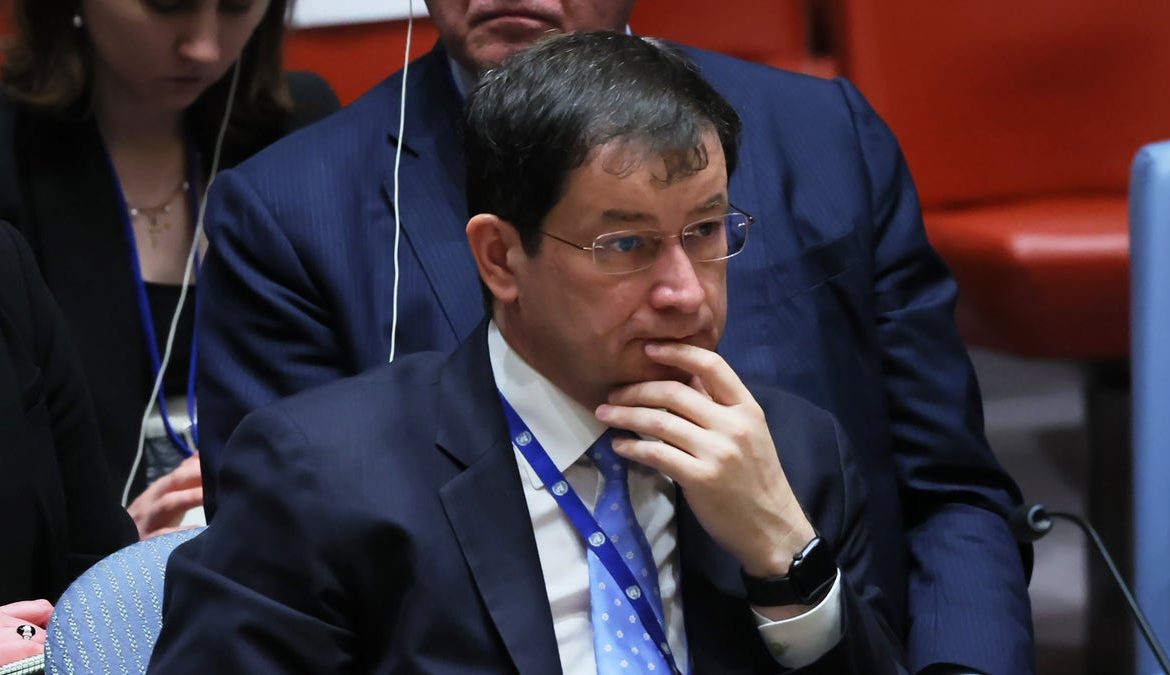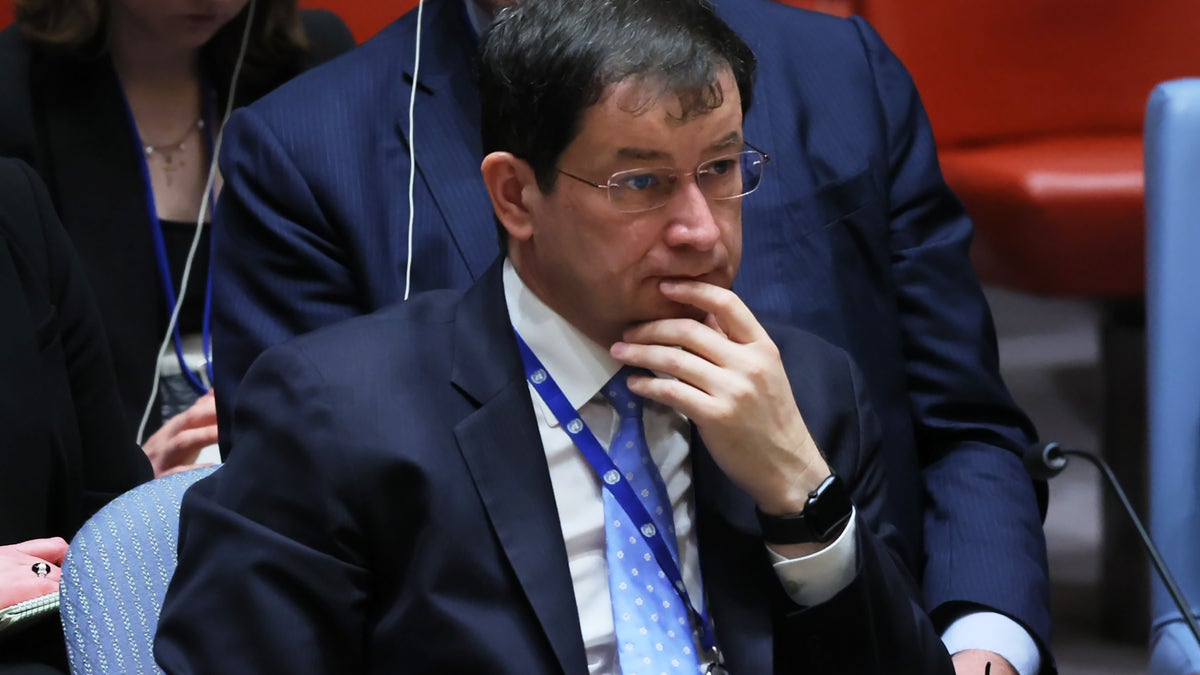
Russia warns Israel that Hamas tunnel plan would amount to ‘war crime’ if pursued

A Russian diplomat has warned that Israel’s plan to flood Hamas tunnels in order to flush out the terrorists may constitute a war crime.
‘War crimes are snowballing — shocking reports have been circulated in recent days that Israel plans to flood underground facilities in the Gaza Strip with seawater,’ Russian First Deputy Permanent Representative to the United Nations Dmitry Polyansky said during a United Nations Security Council meeting this week.
‘According to open sources, the IDF has already built a system of pumps and pipes to pump seawater and is currently discussing with the United States practical aspects of such flooding: whether there will be enough water or if the tunnels’ ‘topography’ is fit for that and so on. Such a step, if made, will constitute a blatant war crime,’ Polyansky argued.
The Wall Street Journal earlier this week reported that the Israel Defense Forces have constructed five large seawater pumps about one mile north of the Al-Shati refugee camp, with each pump capable of moving thousands of cubic meters of water per hour from the Mediterranean Sea into the Hamas tunnels.
The report, citing senior U.S. officials, claims that this process could flood the tunnels within weeks, but Israel has not committed to the plan – especially with concerns over the remaining hostages, whom Hamas may still have in the tunnels. The slow flood could allow for Hamas and hostages to flee the tunnel, a source familiar with the plan said.
‘We are not sure how successful pumping will be, since nobody knows the details of the tunnels and the ground around them,’ the source said. ‘It’s impossible to know if that will be effective, because we don’t know how seawater will drain in tunnels no one has been in before.’
Russian outlet TASS reported that Polyansky blasted ‘Western-biased media’ for hailing the plan as a ‘brilliant tactical solution’ and not thinking about the consequences of pumping the seawater into soil.
‘Obviously, it is a real plan of action to undermine the enclave’s fragile agricultural capacities, because seawater will inevitably contaminate Gaza’s subsoil waters,’ Polyansky said, connecting the plan to the lack of drinking water in Gaza since the start of Israel’s operations and ground invasion of the territory.
The World Health Organization (WHO) said the war has caused a public health crisis in the Gaza Strip that could drive up the death toll, which the Hamas-controlled Gaza Health Ministry has already reported at over 13,300. The lack of functioning hospitals, running water and shelters will contribute heavily to the deteriorating situation, according to WHO.
The lack of potable water supplies, sanitation and medical access is a recipe for epidemics as displaced Palestinians have been forced to take shelter in cramped homes and camps, WHO’s Margaret Harris said at a briefing in Switzerland.
United Nations Secretary-General Antonio Guterres issued a letter to the Security Council this week about the humanitarian crisis in Gaza in a rare invocation of Article 99, which grants him the power to directly convey his thoughts and desires to the council. A secretary-general last used this power in 1971 when fighting broke out in Pakistan and led to the separation of Bangladesh.
Guterres urged the Security Council to pursue a ceasefire declaration, but the U.S. vetoed a motion tabled during Friday’s Security Council meeting, with the United Kingdom abstaining from the vote while all other members supported it.
The U.S. blasted the resolution as ‘divorced from reality’ and argued that it would ‘not move the needle forward on the ground in any concrete way.’ U.S. Deputy Permanent Representative Robert A. Wood called the demand for an unconditional cease-fire ‘dangerous’ and ‘a recipe for disaster for Israel, for Palestinians and for the entire region.’
The resolution demanded an immediate humanitarian ceasefire and the immediate and unconditional release of hostages as well as humanitarian access, but it did not condemn the Hamas attack on October 7, which the UK cited as a necessary condition for its support.
‘Calling for a ceasefire ignores the fact that Hamas has committed acts of terror and is still holding civilians hostage,’ British Ambassador Barbara Woodward explained. She also voiced support for a two-state solution, which she stressed must deliver statehood for the Palestinians and security for Israel.
Fox News Digital’s Chris Pandolfo, Timothy Nerozzi and Lawrence Richard and The Associated Press contributed to this report.
